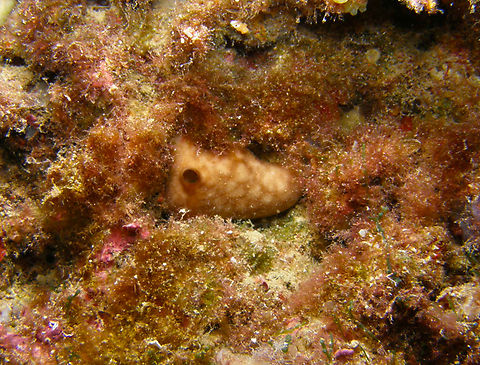
Appearance
is a massive lobate, smooth sponge coloured in variable shades of grey and brown-violet on top, lighter at the sides. When cut in half a distinct darker rim (cortex) is visible on the peripheral parts and the interior is whitish. Its consistency is described as cartilaginous. There are no spicules or fibres in this sponge.Distribution
Portugal; Mediterranean. Possibly also found in European Atlantic coasts.Habitat
From the surface to about 30 m depth, this species is very common on hard substrates. Chondrosia reniformis is mainly found in lighted or shaded areas under rock overhangs, in crevices or at the entrance to underwater caves, very rarely on sandy bottoms.Reproduction
Members of the class Demospongiae are hermaphroditic. Life cycle: The zygote develops into parenchymella larva (free-swimming) before settling down on a substrate where it grows into a young sponge.References:
Some text fragments are auto parsed from Wikipedia.
https://www.marinespecies.org/aphia.php?p=taxdetails&id=134112http://species-identification.org/species.php?species_group=sponges&id=152
https://www.sealifebase.ca/summary/Chondrosia-reniformis
https://doris.ffessm.fr/Especes/Chondrosia-reniformis-Eponge-rognon-314